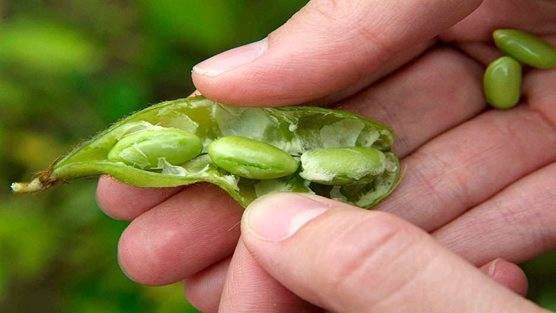Buddhist insights into veganism with Ratnaprabha
I asked Ratnaprabha, a vegan and an Order member of the Triratna Buddhist Community, to tell us more about the relation between Buddhism, meditation and veganism.
Here is his interview.
The recording is in English with French subtitles. The script is available in English.
I’m Ratnaprabha and I teach here at the West London Buddhist Centre. I became a Buddhist a long time ago when I was getting very stressed during my exams at university so I thought I must learn how to meditate, and it was Buddhist meditation that I learnt. I was quite impressed by the Buddhist teacher so I decided to explore Buddhism more and all that has led to this point here.
My name is a Buddhist name and it means the radiance of the jewel. Ratna means the jewel and Prabha means shining.
I became a vegan in 1996. I had always been a vegetarian since I was student, and I was moving to a Buddhist retreat centre (like a monastery, in a way), and all the food was vegan anyway and I always felt ethically I would be much happier being vegan so I thought “it’s my chance, I can easily become a vegan”.
The Triratna Buddhist community is a relatively recent Buddhist organisation that started in the 1960’s. It was founded by Sangharakshita. He had been a monk for many years in the East, and when he came back to Europe he decided that it was not good enough just to have a society about Buddhism. It would be good to have an Order for people who had made a commitment to practising Buddhism for their whole life. But he did not want it to be a traditional order where you have to be a nun or a monk, he wanted it to be an order where you could be a lay person married with children or having an ordinary job, or if you preferred you could live like a nun or a monk.
I think that the way of teaching, as a Buddhist community in London, needs to be adapted to the modern West. It needs to be something suitable for real people, ordinary people, and I know that when I first went along to learn Buddhism, if I have been presented just with men with shaved heads and robes, I would have probably thought “this is just some strange religion. I don’t want to get involved with this”. So I think it’s important that we are very much part of the community and we are involved with the community. I think it’s also good to be able to be very thoroughly engaged with the world, with politics, with social affairs and everything like that.
In the Triratna Buddhist community, we particularly emphasise two kinds of meditation. So what we really need, we really need mindfulness and we really need kindness. If you have those two things then you can make progress as a Buddhist. Mindfulness of other living beings is kindness, and kindness means you have to be mindful and aware. So I think it’s really good to do both mindfulness meditation and the kindness meditation.
Metta Bhavana means cultivating loving-kindness or cultivating friendliness. So the Metta Bhavana meditation is done usually in five stages, and what we are trying to do it’s to develop the same attitude, the same response that we have to a close friend, and see if we can have that for everybody, for all living beings. But we cannot just say “everybody should love everybody”. Maybe they should, but that is very difficult to do. You need some kind of discipline, some kind of practice that helps you to develop more love and more kindness, so we do it in these stages to gradually build it up.
In the first stage we start with ourselves. So we say, “I need to make contact with my genuine wish for my own welfare, I need to think, yes I do, I would like to be a happy person, I would like to have a good life”, and it’s good to remind yourself of that, so your love for others is not a sort of self-sacrificing, martyr kind of love. And then you think of a close friend. It should be quite easy here. You call to mind a close friend. And you think, “what a nice person, I really like this person, that would be wonderful, and I really hope if they are ill, they will get better, if they are going for job, I hope they get that job”, all kind of thing. You really wish the best for your friend, which is relatively easy. Then you see if you can keep that same flow of kindness going, the friendliness going, when you then think of a neutral person in the third stage. Someone that you don’t particularly care about, but you think “can I do that towards that neutral person?” And then in the fourth stage, you do it for a difficult person, which is the hardest of all. Someone who’s actually caused you problems, and usually I would say “go away, I wish they can suffer as much as I have” and instead you say, “no, may they be well, may they be happy”. I am not going to pretend that I like them, I am not going to pretend they haven’t done horrible things maybe, but at least I wish them well. And then you radiate that feeling out towards all beings, all human beings and all animals as well. This is very important, that animals must be included in that last stage, all living beings whatever, you try to radiate a sense of wanting them to be happy and wanting them to thrive. It’s a delightful meditation to do it actually, very, very good fun if you can get into it.
When we do Metta Bhavana practice, the kindness practice, it’s important to distinguish between feelings and emotions. So the feeling is just how you are feeling and particularly the way you respond to things. So you think of a person who is actually a good friend to you, and immediately you feel good. You think of the difficult person, and immediately you feel ugh, horrible. But the thing is, Metta is not a feeling, it is not just something you have in your heart; it’s an intention. And then intention makes it into what you could call an emotion. In English and maybe in other languages as well, feeling and emotion, they merge into each other, but in Buddhism the word for feeling is very distinct from the word for emotion. Emotions, I think, that is what you do, what you create, and they are intentions, that you want happiness for other people, while the feeling is just when you meet this person you feel good, when you meet this person you feel bad. So that’s the distinction, and sometimes you do this meditation and you don’t feel full of wonderful, warm loving feelings, but nevertheless you can have a genuine sense “I really would like these people to be happy, it’s difficult but I would like them to feel happy”.
If I think of the people I have taught meditation, or who I know who meditate, it usually implies changes in their lives. Not always, but it usually does. And especially if you do the Metta Bhavana meditation, you are going to be a kinder and a more sympathetic person. So when it comes to your diet, your ethical behaviour in the world, it will have some effect. So it’s interesting that in my own case, it started with vegetarianism, then it got stricter and moved to veganism. And I think I have seen that with other people. They might be, when they first start to meditate, big meat-eaters, and sometimes they get in the meditation images of animals, of suffering animals, quite spontaneously, they have realised that, and the next time they are eating meat they make much more the connection because they have been doing the meditation, they make a connection with the living being that was there or if they use dairy products they remember what they heard about the conditions that animals have to live in dairy farms. So that kind of sympathy is promoted by the meditation, and usually it has an effect.
I think the meditation seems to make you have a more sensitive heart. Your heart becomes more open and your awareness grows as well. If your awareness grows, then surely your compassion will also become stronger.
In the fourth stage of the meditation, you are extending your kindness towards somebody who you don’t like, or you feel reactive to, and I think the relationship that vegans have towards non-vegans can sometimes be a little judgmental, where they are feeling “oh no, this is a person I don’t want associate with, they are not a good person, they are a bad person, how can they possibly do this?” But when you do the meditation you feel a bite more sympathetic towards people who don’t necessarily share the same values. This is my view only and it may be controversial but it seems to me that different people sometimes have different ethical priorities. So simply the fact that at the moment they may be relatively insensitive to animals, but they may be much better than I am when it comes to relating to children, for example. So I don’t want to judge people because they haven’t become vegan and say therefore they are unethical. It may be, and especially if they have Buddhist awareness, they are working on other areas of their ethics, and the sensitivity to animals will be something that comes later on.
In Buddhism meditation is said to have a number of different effects and partly it’s to do with cultivating loving-kindness or cultivating mindfulness, partly it’s to do with getting into a calm and more open state of mind, but the main reason for meditating from the Buddhist point of view is to gain insight, is to see through to the nature of reality, and in seeing through to the nature of reality you lead a much more realistic life, you treat the world as it really is, and yourself as well . You see your limitations, but you also see your potential. So I think that insight is the most exciting and wonderful thing that can happen through meditation.
If I wanted to recommend an introduction to meditation, I think I would suggest something by one of our teachers here, because he is such an excellent meditation teacher. It’s a very conversational and open book. It’s called “Change your mind” by Paramananda, and that is a very good book to introduce people to the Buddhist style of meditation, but in a very open way.
In terms of Buddhism and animal rights and vegetarianism, I’m going to show you some covers here. This is by an American guy called Norm Phelps, “The Great Compassion”, So “The Great Compassion” is about Buddhism and animal rights in general. And one of the interesting things about it is that it does focus on Tibetan Buddhism, and a lot of Tibetans are not even vegetarian let alone vegan. And he has a long interview with the Dalai Lama who, his doctors told him he must eat some meat, and so he eventually said “ok, half the time” because he wanted to be vegetarian. So “half time I obey my doctors and half the time I won’t”, but he very much recommends that people should stop eating meat.
This one is by a Theravadin monk, which is called “To eat or not to eat meat” by Dhammika, and that’s very interesting if you want to look into the early beginnings of vegetarianism in Buddhism
This one by Bodhipaksa called “Vegetarianism”. This one is really accessible and very useful. Lots of practical tips and including a section on veganism.
This one is an old edition but this is a classic book on Buddhism and vegetarianism by Roshi Philip Kapleau, an American Zen teacher and I think they changed the name of it. It’s no longer called “A Buddhist case for vegetarianism”, it’s called “To cherish all life” and it’s an excellent book.
So when I think about Buddhism and veganism, it makes me think first of all about just how crucial from a Buddhist point of view it is to practise non-harming of living beings. It is something that the Buddha said right from the beginning, we must practise non-harming of living beings and we must behave from kindness as if all beings are our friends. This is why I became a vegetarian, and then I became a vegan. But I think it’s important not to be too narrow about it, and sometimes I’ve met vegans who are very obsessed with their diet, while there may be other ways in which they are not so kind and friendly towards other living beings, including other human beings. So I think it’s a practice, something that can always expand, one can never be complacent, and think “it’s ok, I have adopted a vegan diet that means now my life is entirely sorted, I’m a wonderful, perfect loving human being”. It’s not the case. There is always more that we can do, and I think the more we can do is to be more sensitive to other people, to other living beings and to see what their needs are, see if we can help them meet their needs, to see if we can become kinder, in various ways, to them.



